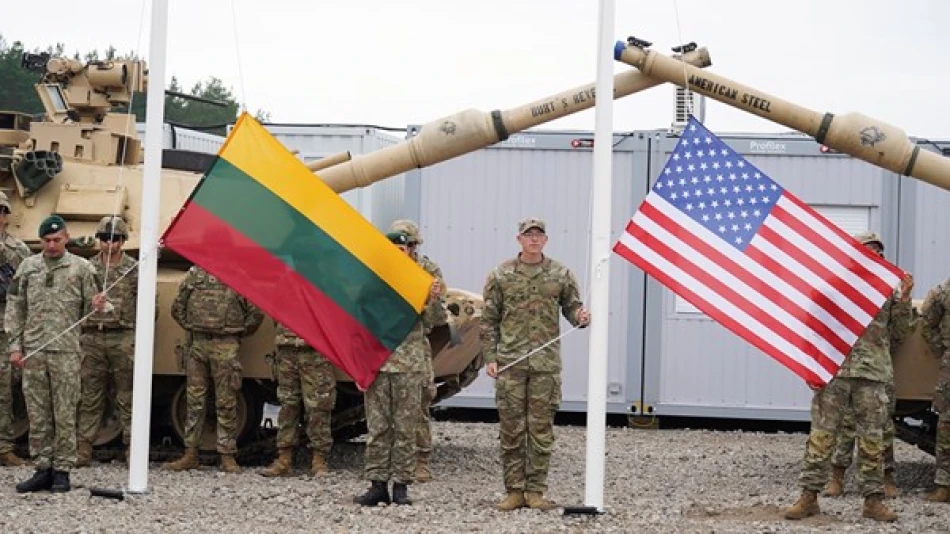
US Halts Military Aid to Eastern European Nations, Sparking Geopolitical Shifts
Trump Administration Cuts Military Aid to Eastern Europe in Push for Self-Reliance
The United States is ending long-standing military assistance programs to several European nations, with Lithuania confirming that the Pentagon has notified affected countries that funding will cease in the next fiscal year. The move represents a concrete implementation of President Donald Trump's "America First" approach and his persistent demands for European allies to shoulder greater responsibility for their own defense.
The Financial Reality Behind the Cuts
According to Lithuanian defense policy director Vaidotas Urbelis, the Pentagon informed affected nations last week that military funding would be eliminated starting in the upcoming fiscal period. The programs, worth hundreds of millions of dollars according to reports, have supported weapons purchases, equipment procurement, and training programs across Eastern European militaries.
For Lithuania specifically, the cuts will impact 30 to 80 percent of total military assistance received from the United States, affecting American weapons purchases, equipment, and training courses. However, Urbelis clarified that the decision will not affect U.S. forces stationed in the region, which are funded through separate budget allocations.
Strategic Implications for NATO's Eastern Flank
This funding cut comes at a particularly sensitive time for Eastern European security. These nations, many of which joined NATO after the Cold War, have relied heavily on American military assistance to modernize their forces and integrate with Western defense standards. The timing coincides with ongoing tensions in the region and follows years of increased military cooperation between the U.S. and Eastern European allies.
Estonian Defense Minister Hanno Pevkur characterized the American decision as "symbolic," suggesting that while the financial impact may be manageable, the political message carries significant weight. The move signals a fundamental shift in how Washington views its security commitments to newer NATO members.
Trump's Broader Foreign Policy Realignment
A White House official, speaking anonymously, confirmed that the cuts align with Trump's January executive order calling for a comprehensive review of foreign assistance. The decision reflects the administration's consistent pressure on European allies to increase their own defense spending and reduce dependence on American military support.
This approach builds on Trump's long-standing criticism of NATO allies for failing to meet the alliance's target of spending 2 percent of GDP on defense. By cutting direct military aid, the administration is essentially forcing European nations to choose between increased self-reliance or reduced military capabilities.
Market and Defense Industry Impact
The funding cuts will likely affect American defense contractors who have benefited from these assistance programs, as much of the aid typically returns to the U.S. economy through weapons and equipment purchases. Companies like Lockheed Martin, Boeing, and Raytheon may see reduced orders from Eastern European clients who previously relied on American financing.
Conversely, European defense manufacturers could benefit if affected nations choose to diversify their procurement or seek more cost-effective alternatives. This shift might accelerate Europe's push for greater defense industrial autonomy, a goal that has gained momentum in recent years.
Testing European Defense Resolve
The aid cuts represent a calculated gamble by the Trump administration. If successful, they could catalyze genuine increases in European defense spending and capabilities. However, they also risk weakening military partnerships that have taken decades to build and potentially creating capability gaps in a strategically important region.
For Eastern European nations, the cuts present both challenges and opportunities. While they must now find alternative funding sources for military modernization, they may also gain greater autonomy in defense decision-making and reduce their dependence on American military largesse.
Most Viewed News

 Layla Al Mansoori
Layla Al Mansoori






